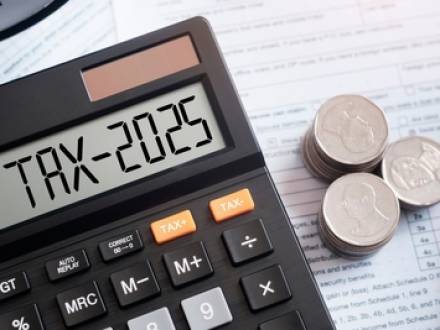When Do Limited Partners Qualify for Exemptions From Self-Employment Taxes?
 There are a variety of tax-related concerns that can affect business owners and partners. Understanding what taxes will apply to a business’s earnings, the income paid to partners, and the distributions of profits and losses can be a complex matter. In some cases, there may be confusion about whether limited partners in a business partnership will be required to pay self-employment taxes. By addressing issues related to small business taxes correctly, business owners and partners can avoid potential penalties.
There are a variety of tax-related concerns that can affect business owners and partners. Understanding what taxes will apply to a business’s earnings, the income paid to partners, and the distributions of profits and losses can be a complex matter. In some cases, there may be confusion about whether limited partners in a business partnership will be required to pay self-employment taxes. By addressing issues related to small business taxes correctly, business owners and partners can avoid potential penalties.
The U.S. Tax Court recently issued a ruling addressing whether a limited partner in a partnership can qualify for an exception from self-employment taxes under the Self-Employment Contributions Act (SECA). This decision is particularly important for business owners, partners, and investors, as it clarifies how self-employment taxes are assessed and when a limited partner may be exempt. An experienced San Jose, CA tax attorney can help business owners and investors determine their tax obligations and ensure compliance with federal tax laws.
How Self-Employment Taxes Are Assessed
Self-employment taxes are imposed under SECA to fund Social Security and Medicare for people who are self-employed. Unlike employees, who have these taxes withheld from their paychecks, self-employed workers must pay the entire tax amount themselves. The current self-employment tax rate is 15.3 percent, which includes 12.4 percent for Social Security (up to the annual wage cap) and 2.9 percent for Medicare (with an additional 0.9 percent for high earners).
Under Internal Revenue Code (IRC) § 1402(a)(13), limited partners are generally excluded from paying self-employment taxes on their share of partnership income, except for guaranteed payments they receive for services rendered. However the definition of a "limited partner" has been subject to legal debate, leading to disputes over whether certain partners qualify for the exemption.
The Tax Court's Ruling: Functional Analysis of Limited Partners
A recent Tax Court case examined whether a taxpayer who is considered a limited partner in a partnership should be exempt from self-employment taxes. The court ruled that merely holding the title of a limited partner is not enough to qualify for the SECA tax exemption. Instead, a functional analysis must be performed to determine whether the partner actively participates in the partnership's business.
The analysis considers whether the limited partner:
-
Actively participates in the partnership’s operations
-
Provides significant services to the partnership
-
Has managerial control or decision-making authority
-
Acts as a passive investor without regular involvement in business activities
If a limited partner is actively engaged in running the partnership, they are subject to self-employment taxes, even if they hold the title of limited partner under state law. If a limited partner functions solely as a passive investor, they may qualify for the tax exemption.
Implications for Business Owners and Investors
This ruling reinforces the importance of structuring partnership agreements carefully and ensuring that partners’ roles align with their tax treatment. Key takeaways from the ruling include:
-
Title Alone Does Not Determine Tax Status: Limited partners must meet the functional criteria for exemption.
-
Service-Based Compensation May Be Taxable: Payments for active participation in the partnership may be subject to self-employment taxes.
-
Proper Documentation Is Essential: Partnerships should maintain clear records of each partner’s role to support their tax positions.
Contact Our San Jose, CA Business Tax Attorney
Understanding the self-employment tax obligations that apply to different types of business partners can be a complex matter. By addressing these issues, business owners, partners, and investors can make sure taxes are paid correctly and avoid potential penalties. At John D. Teter Law Offices, our San Jose, CA tax lawyer can provide guidance on the best ways to address these concerns, and we can work with partners to resolve tax issues and mitigate potential penalties. Call 408-866-1810 today to schedule a consultation.









